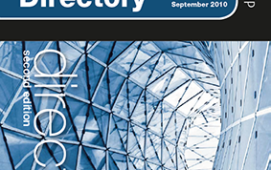MSCI, a provider of investment decision support tools worldwide, including indices, portfolio risk and performance analytics and corporate governance services, announced today that it has launched three new risk-based indices. These alternatively weighted indices are based on three standard flagship MSCI indices and include the MSCI ACWI Risk Weighted Index, the MSCI Emerging Markets Risk Weighted Index and the MSCI World Risk Weighted Index.
While standard MSCI market cap indices represent the market return (equity risk premium), many investors are now looking for indices that reflect other sources of systematic return (style and strategy risk premia). For some time, MSCI has been pioneering alternatively weighted indices that aim to capture systematic beta or the returns of particular investment strategies. In 2008, for example, MSCI introduced its Minimum Volatility Indices, which were designed to reflect the performance characteristics of a minimum variance strategy through the use of optimisation. In 2010, MSCI introduced its Value Weighted Indices, which aimed to capture the performance characteristics of a value tilted investment strategy using fundamental weights such as Sales, Earnings or Book Value.
“Following our successes with the MSCI Minimum Volatility Indices and the MSCI Value Weighted Indices, we are now adding the MSCI Risk Weighted Indices to our family of alternatively weighted indices,” said Remy Briand, managing director and head of index research. “Our systematic indices are designed to capture alternative beta sources. We think our risk-based indices in particular provide a tool to help clients efficiently mitigate risk in a disciplined and low cost manner.”
The MSCI Risk Weighted Indices use a simple but effective and transparent process to capture lower risk characteristics than traditional cap weighted indices. Each MSCI Risk Weighted Index reweights all the constituents of a cap weighted MSCI parent index so that stocks with lower historical return variance are given higher index weights. By emphasising low volatility stocks in this way, the MSCI Risk Weighted Indices have historically exhibited lower realised volatility compared to their respective parent MSCI indices, while maintaining reasonable liquidity and capacity and a full representation of the parent index.
Subscribe to our newsletter




